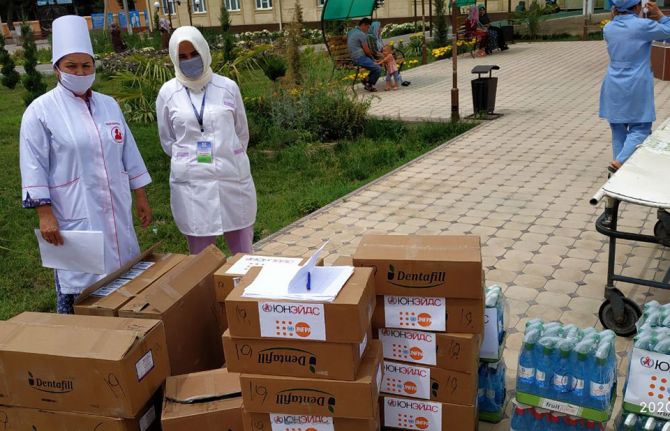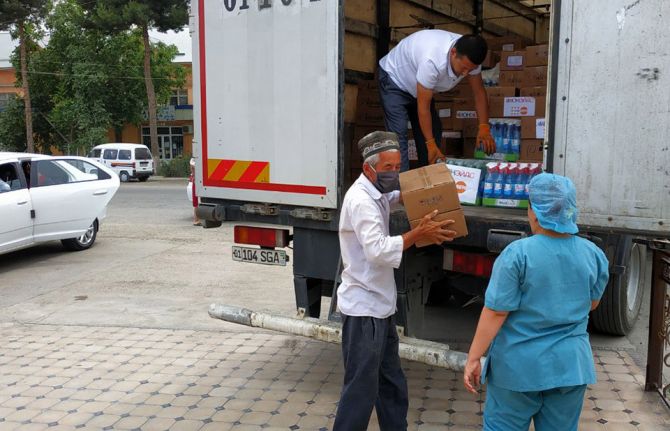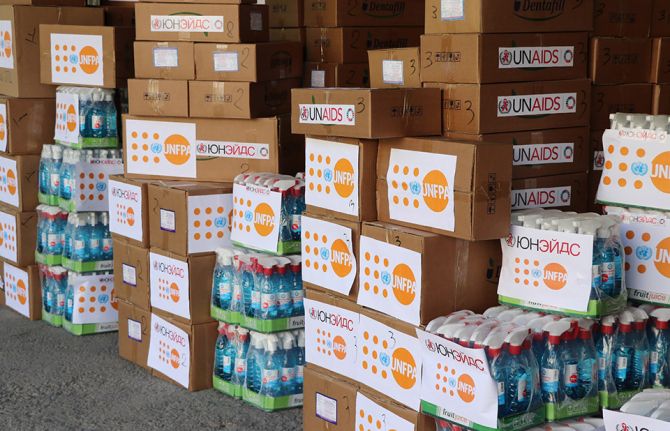



Feature Story
Support for Uzbek mothers living with HIV
08 July 2020
08 July 2020 08 July 2020Shakhnoz Amirova (not her real name) lives in Tashkent, Uzbekistan. She has been taking antiretroviral therapy regularly since 2017, when she discovered that she was living with HIV. She continued the treatment while pregnant with her child, so she did not have to worry about her baby’s health, which was born HIV-free. But the COVID-19 pandemic has changed everything, and the lockdown restrictions severely limited access to medical services.
The immediate anxiety about the possible disruption to her HIV treatment and that of her husband, who is also living with HIV, was allayed by the health-care facility that she attends, the Republican AIDS Center, dispensing a two-month supply of antiretroviral therapy for everyone who needs it.
However, Ms Amirova was pregnant again and worried about the impact that COVID-19 may have on her and her unborn child, since information on how COVID-19 may affect people living with HIV was scarce. She was even unsure whether the coronavirus outbreak would stop her being able to have her baby at the maternity hospital.
“Women living with HIV feel especially vulnerable during pregnancy and childbirth, as fear of virus transmission, stigma and discrimination are added to the fears for the well-being of their baby. Of course, the situation with coronavirus is an additional stress factor. At such a difficult moment, women really need help and support, and we are trying to provide this help to them,” said Evgenia Korotkova, a representative of Ishonch va Khaet, an organization that helps people living with HIV.
The Positive Maternity programme run by Ishonch va Khaet helps women living with HIV who are pregnant or have recently given birth with social support, delivering antiretroviral therapy and baby food and providing medical care. During the COVID-19 outbreak, Ishonch va Khaet and similar organizations are working doubly hard so that people who need help get it as quickly as possible.
Yuldashev Kahramon Haldarovich, the Director of the Republican AIDS Center, noted the special role of nongovernmental organizations during a pandemic. “Community involvement in HIV prevention and support for people living with the virus are very important, especially at such tense moments, when the efforts of all health professionals and doctors are concentrated on fighting another pandemic. We cannot leave people who need HIV services behind; they also need help, and they need it today. The work of volunteers from social organizations is priceless.”
Since keeping patients and medical personnel in maternity hospitals safe from COVID-19 is such a priority, UNAIDS and the United Nations Population Fund have made a donation of a range of personal protective equipment, including masks and gloves, and disinfectant to 21 maternity hospitals in Uzbekistan.
“Protecting medical personnel in maternity hospitals from infection is as important as protecting pregnant women. The country is currently on the way to eliminating mother-to-child transmission of HIV. Preventive measures against COVID-19 are important for supporting the progress made,” said Charos Maksudova, the representative of UNAIDS in Uzbekistan.
Ms Amirova safely gave birth in the maternity hospital, happy that both her and her baby avoided becoming infected by the new coronavirus and that her baby was born HIV-free. “But fear for my children, especially for a newborn, does not leave me for a minute,” said Ms Amirova.
Now back at home, she is receiving help from peer counsellors from the Positive Maternity programme.


